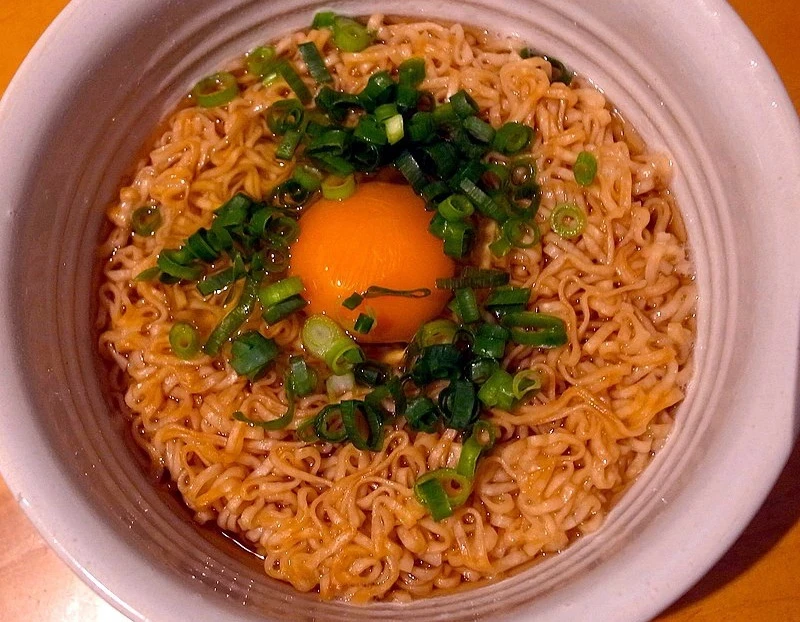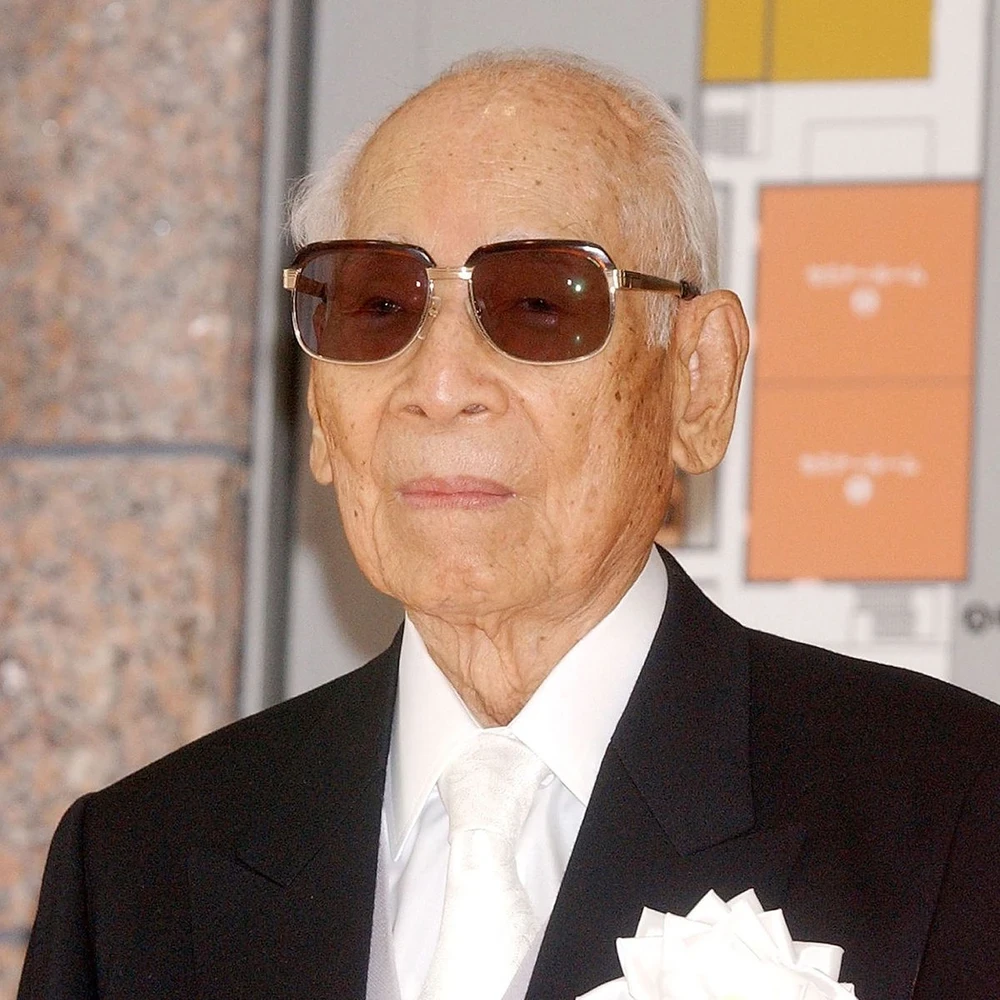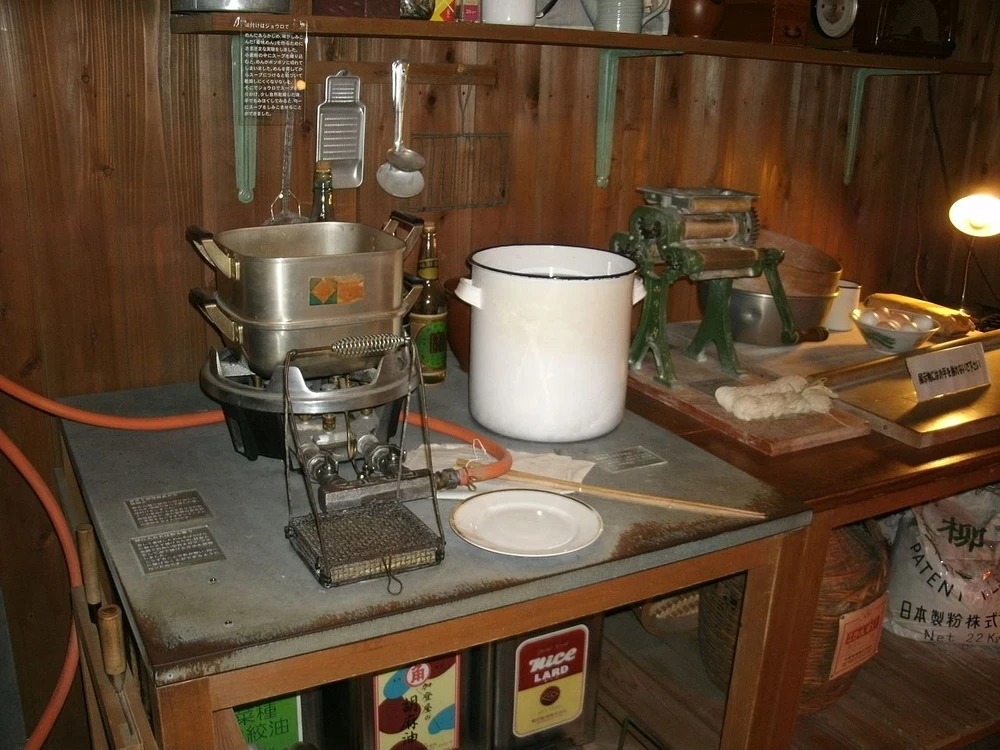Every time he saw people lining up on the street to buy a bowl of hot noodles, Momofuku Ando wondered how convenient it would be if he could make a type of noodle that could be eaten immediately after pouring boiling water over it.

Instant noodles were invented by Momofuku Ando, owner and founder of the famous Nissin company in Japan in 1958.
Ando was born and raised in Taiwan. After the war, he had to choose between remaining a Japanese citizen or becoming a Taiwanese citizen. Ando chose the latter option, keeping his inheritance in Taiwan but then living in Japan. He later founded the Nissin Salt Company in Osaka.
In 1953 and 1954, American farms had an extremely bumper wheat harvest, and in the early postwar years, the United States provided aid with surplus crops. At that time, Japan, South Korea, and Taiwan were all facing shortages of staple foods.
With the influx of wheat flour aid from the United States, the Japanese government encouraged its people to actively eat bread made from that flour.
In a chance meeting with Kunidaro Arimoto, who had worked for the Ministry of Health, Ando bluntly criticized this policy: "With bread, you need a filling or a side dish. But the Japanese just eat it with tea. It's not good for a balanced diet. The East has a long tradition of eating noodles. Why don't we promote noodles, which the Japanese really love, as a food made from flour." And Kunidaro replied: "Why don't you solve this problem yourself?" And Ando did just that.
Ten years later, in 1957, Ando purchased a used noodle-making machine, along with 18kg of flour, cooking oil and other ingredients, and set out on a mission to find a way to easily make noodles at home.

Every time he saw people lining up in the snow and ice on the street to buy a bowl of hot noodles, Ando wondered how convenient it would be if he could make a type of noodle that didn't need to be cooked for long, and could be eaten immediately after just pouring boiling water over it.
The hardest part was how to make the noodles quickly absorb boiling water and cook immediately. One time, he noticed his wife using oil to cook food, so he thought he could also use oil to fry the noodles so they would expand and absorb water quickly. To make the noodles taste good, he soaked them in soup made from beef or chicken bones, then dried them.
Ando developed the entire manufacturing process, from making the noodles, steaming them, seasoning them, and then dehydrating them with hot oil, a process now known as flash frying, to create what we know today as the first instant noodles.
The new invention has a longer shelf life than frozen noodles and costs 35 yen, much more than fresh noodles. But the preparation process is simple, just pour boiling water and wait two minutes.
On August 25, 1958, after a year of hiding in a wooden shack in the backyard of his house, Ando successfully produced the first batch of chicken-flavored instant noodles under the Ramen brand, commonly known as Chikin Ramen (Chikin is a play on "chicken").
These are dry instant noodles pressed into rectangular blocks. This food does not need to be cooked, just put it in a bowl, pour boiling water over it and cover it tightly, leave it for a while and it is ready to eat.
This type of noodle was very suitable during that time, when Japan was rapidly industrializing, people wanted to choose a quick, convenient and delicious instant food.

To produce on a large scale, in December of that year, Ando expanded Nissin Food Products Co. A year later, Mitsubishi, a giant industrial corporation in Japan, jumped in to help promote this fast food, helping Ramen noodles quickly become popular.
To maintain the reputation of his product, Ando applied for trademark and patent registration. In 1962, his company was officially granted a trademark registration and a patent for instant noodles. Ando then sent out a warning letter to companies that were copying his product.
But in 1964, Ando made a generous gesture by ending the monopoly on instant noodle production, establishing the Instant Food Industry Association, and publicizing his invention, transferring the technology to other companies so that they could benefit together.
The following year, instant noodles under the Chikin Ramen brand began to be sold in Japanese stores.
What impact did Ando's innovation have? Sixty years after its invention, an estimated 100 billion servings of instant noodles are consumed worldwide each year.
Ando died at the age of 96 of heart failure in Osaka, Japan, on January 5, 2007. It is said that he ate Chicken Ramen almost every day until his death.
Ando's famous quote is: "Peace will come to the world when everyone has enough food and drink." This will certainly be the motto for true businessmen forever.
According to Vietnam+